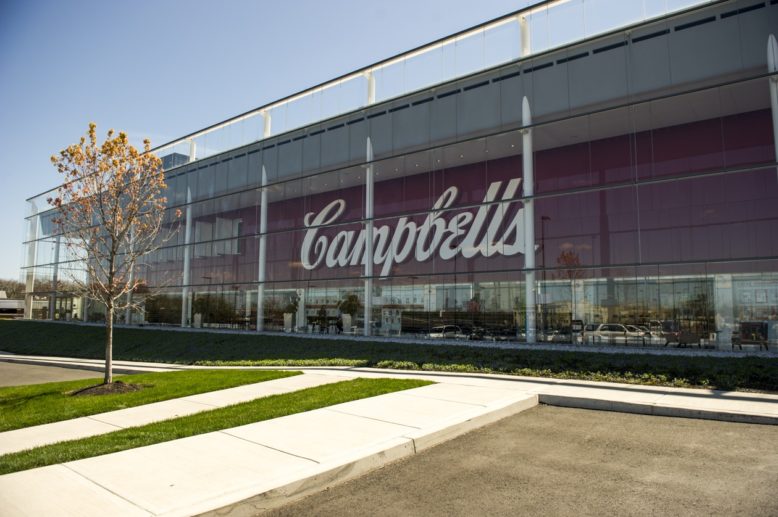
Photo courtesy of Campbell Soup Co.
Not many businesses have seen a rise in profits during the coronavirus pandemic, but Camden-based Campbell Soup Company ranks among them. After years of struggling mightily in the marketplace, the Fortune 500 food company says record demand for its products pushed sales up 15 percent in the third fiscal quarter as compared with the previous year. The surge brings net January through April sales to $2.24 billion.
At the store level, that translates to a 29 percent dollar-sales increase, driven by the renewed popularity of soup and 49 percent growth for the Prego pasta sauce brand.
President and CEO Mark Clouse says in a statement, “We experienced unprecedented broad-based demand across our brands as consumers sought food that delivered comfort, quality and value.”
Owing to stress over the pandemic and government orders that kept consumers from dining out, grocery shoppers found themselves generally forced to cook at home and craving comfort food. April’s historic 14.7 percent unemployment rate pinched budgets.
Enter Campbell’s, which stocks its pantry with $8.1 billion worth of soups, sauces, juices, pretzels, chips and good old Pepperidge Farm Goldfish crackers—relatively inexpensive foods designed to warm the cockles and sooth the soul. Demand reached so high, in fact, the manufacturer couldn’t supply stores fast enough to keep shelves stocked.

Photo courtesy of Campbell Soup Co.
Beyond the double-digit sales increases, executives are hopeful about the infusion of millions of new retail buyers who haven’t bought its brands for at least a year, with the coveted millennial buyer driving the exploration. Though retail analysts don’t expect buyers to continue stocking up on goods in the long-term like they did in the early stages of the pandemic, Campbell’s decision-makers label themselves optimistic that they can hang on to those newcomers even after most stay-at-home mandates lift.
They look toward larger ad spends, a slow societal return to normal dining-out patterns, and four trends that haveve accelerated during the pandemic and will likely stick around: Continuing reliance on cooking simple, affordable meals at home; greater comfort with grocery shopping online; more focus on soup and similar products at market; and ongoing pressure to make value purchases.
The impact of the turnaround for Campbell’s can’t be overstated. In 2018, Forbes reported that the 150-year-old company had posted significant losses for the previous four years and was trading at 1996 levels. Attempts to combat trends that had shoppers—particularly younger ones—eschewing processed and packaged foods in flavor of planet-, community- and heart-healthier options went nowhere.
Despite this, Campbell’s charity arm has likely helped company engender goodwill by donating more than $4 million worth of food and money to municipalities where its employees live. It’s also gone further than most to provide temporary bonuses to 11,000 workers, still paying some $2 more per hour since March 29 and $100 extra per week to essential infrastructure workers.
